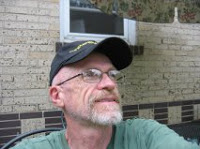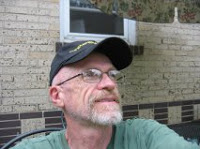Children do not “cope” with loved ones – they “survive” loved ones. Babies survive being accidentally dropped when they are covered in soapy bath water or are squirming at the wrong time when a parent’s attention is distracted or any number of similar circumstances. Most parents love (and would never deliberately hurt) their children, but legitimate mishaps do occur.
Young children cope by using survival instincts, like staying out of sight of a raging parent, if they can. Some hide under the bed; some escape to a friend’s house or apartment. Some assume an adult role and make coffee for their hung-over parent. Others care for younger siblings to the exclusion of their own social needs. Some turn to illegal drugs and alcohol, while others just run away from home. Unfortunately, some must do all of the above to one degree or another.
Once a child’s brain develops increased capacity for reason, logic, and problem-solving, survival skills can grow into rudimentary coping skills. Skills like thinking ahead to possible consequences for one’s actions (for example, do not do anything that might make mom or dad angry). Trying to become the perfect child is another example. Another skill is to keep secrets by not telling your parents anything that would upset them even if you only think some information might upset them and make them angry. Closely associated with keeping secrets are the twin skills of avoiding telling the whole truth or outright lying. These two skills can lead to major consequences when discovered by parents.
One type of survival-mechanism children use is totally involuntary and effective but can leave permanent damage to a child’s physical or emotional development. I am referring to the case where the situation a child is in, is so terrible that the child’s subconscious intervenes, and mentally the child “goes” somewhere else in their head. Other situations may not be so terrible, but still cause a child mental, emotional, and physical pain.
At the age of 9 ½, when I was told about my parent’s divorce, my mother’s remarriage, pregnancy, and my new stepfather and stepbrother, I developed the classic symptoms of shock along with depression. Then my father, who was the one who told me about the divorce, left the next morning. After spending the weekend moping, crying, scared, and confused, my subconscious “turned off” my emotions dealing with loss. I became emotionally incomplete, which has a major impact on my life even to this day. Perhaps not feeling negative emotions actually helped me survive the confusion over my orientation, having to babysit my siblings instead of attending after-school activities, and so forth during my high school years.
Survival and coping skills learned in childhood and adolescence, can serve an adult well, if developed properly. Are there any straight or GLBT parents who have not experienced challenges when raising children through their various stages of development? Things like: potty training; the terrible two’s; the 2AM “Daddy. I want a glass of water.”; the midnight through 6AM feedings every two-hours; “All the girls wear makeup. Why can’t I?”; diaper changing ad nauseum; underachieving at school; overachieving at mischievousness; various childhood illnesses; dental and doctor appointments; conflicting school and family activities; “I hate that food item!”; “Can I have a $20 advance on my allowance?”; “Sir, this is officer Bob. Could you please come to the police station and pick up your son? He’s had a bit too much to drink for a 13-year old.”; “Mom, now that I am 12, can I have a 16-year old boyfriend?”; “Mom. I’m bleeding between my legs.”; “Son, do that in private or at least lock the bathroom door.”; “No you can’t watch a PG-13 movie until you are 13 and no R-rated movies until you are 30.”; “Mom, Dad – I’m gay/lesbian.”; and a host of other such issues too numerous to list.
How does an adult cope with those challenges? You do the best that you can with the knowledge and skills you learned as a child in how your parents manipulated you.
But there are some of life’s challenges that no one can really prepare for. Divorce is hard enough on the adult but especially devastating for a child or even adolescents. Some adults and children have friends to be a social support during the stressful times. Others turn to their religious faith for comfort. Some just get depressed and withdraw and many children take their own life.
My most stressful time was when I was temporarily caring for my wife’s mother, an Alzheimer patient. Her regular caregiver (and partner) needed to take a month-long vacation. My children and I split up the time with me taking two-weeks and the others taking one-week each. The first night I stayed with my mother-in-law, she decided that she was in my apartment and spent much of the time between 1AM and 6AM (while I was asleep), packing her things and loading her car so she could drive to her house (the one she sold several years previous). For the rest of the two-weeks I was there, I was in survival mode and not much good for anything.
I left my car there for my children to use while there, and I took the train back to Denver. The train took 3-days to go from Jacksonville to Denver by way of Washington DC and Chicago. I needed every one of those days to decompress and relax.
Even knowing what to expect from an Alzheimer patient, who can really prepare for the reality. I truly understand how loving children can place their Alzheimer parents into a nursing type facility, as the stress is tremendous. What I do not understand is how the staff of those facilities can provide the care they do without shutting off their emotions.
People do not really cope with situations. They maneuver about mentally and physically until the “crisis” passes and they become survivors.
© 14 October 2012
About the Author
I was born in June of 1948 in Los Angeles, living first in Lawndale and then in Redondo Beach. Just prior to turning 8 years old in 1956, I was sent to live with my grandparents on their farm in Isanti County, Minnesota for two years during which time my parents divorced.
When united with my mother and stepfather two years later in 1958, I lived first at Emerald Bay and then at South Lake Tahoe, California, graduating from South Tahoe High School in 1966. After three tours of duty with the Air Force, I moved to Denver, Colorado where I lived with my wife and four children until her passing away from complications of breast cancer four days after the 9-11-2001 terrorist attack.
I came out as a gay man in the summer of 2010. I find writing these memories to be therapeutic.
My story blog is: TheTahoeBoy.Blogspot.com



